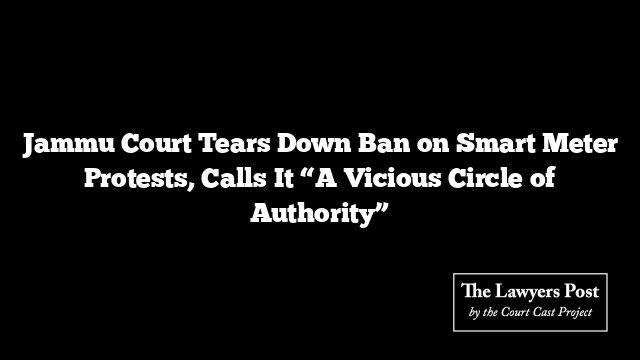A Sessions Court in Kishtwar has struck down the controversial order that silenced public protests against smart meter installations, calling the ban “arbitrary, illegal, and negligent.”
Back in February, the then-district magistrate invoked Section 163 of the Bharatiya Nagarik Suraksha Sanhita, 2023—meant for urgent cases of public nuisance—to prohibit demonstrations. The justification: protests for free electricity were obstructing meter installations and disturbing official work.
But Judge Sudhir K Khajuria wasn’t convinced. In a detailed ruling on August 28, the court found that the order lacked the very foundation the law demands—an independent, fact-based inquiry.
The judge highlighted how the supposed “inquiry” was nothing more than a Tehsildar’s report prepared on the magistrate’s verbal directions. “A strange and vicious circle,” the court remarked, noting that the district magistrate both initiated and received the report, effectively rubber-stamping his own assumptions.
The ruling pointed out that no individuals were examined, nor were there any genuine complaints from government officers about obstruction. Instead, the process seemed designed to stifle dissent rather than protect public peace.
The judgment echoed past Supreme Court warnings against misuse of prohibitory powers under the old Section 144 of the CrPC—now mirrored in Section 163 of the BNSS—to choke democratic expression.
Petitioner Waseem Akram Bhutt, who challenged the order, argued it was a mechanical attempt to strip citizens of their right to protest. The court agreed, quashing the magistrate’s ban and restoring space for public dissent.
Counsel Safder Ali Shoket represented the petitioner.





